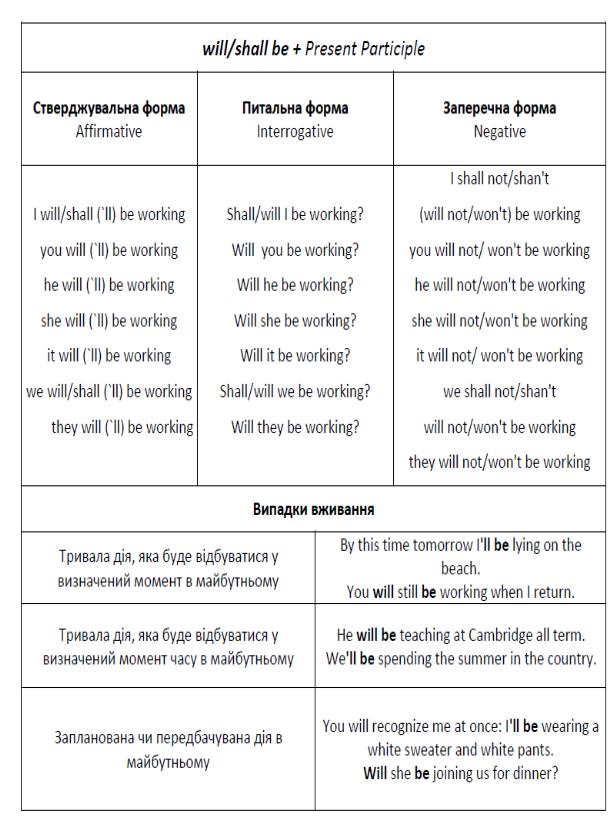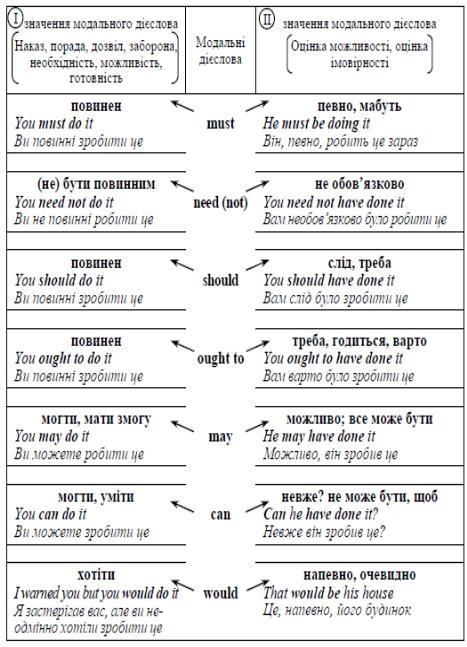
- •1. Робота над текстом за темою заняття.
- •1. Прочитайте та перекладіть текст
- •2. Підберіть відповідні еквіваленти перекладу:
- •3. Знайдіть пояснення терміну:
- •4. Дайте відповіді на питання:
- •3. Складіть до тексту словник фахових термінів за схемою: термін (англійською мовою), транскрипція, переклад терміну українською мовою. Обсяг словника – 25 слів.
- •4. Складіть простий план до тексту.
- •1. Прочитайте та перекладіть текст.
- •2. Вивчіть наступні слова.
- •3. Дайте відповіді н запитання:
- •4. Поясніть наступні слова та словосполучення, пов’язані з сша.
- •1. Підберіть відповідні еквіваленти перекладу:
- •2. Знайдіть пояснення терміну:
- •3. Дайте відповіді на питання:
- •4. Доповніть речення:
- •1. Прочитайте та перекладіть текст.
- •2. Вивчіть наступні слова.
- •3. Дайте відповіді на наступні запиьання.
- •4. Підготуйте невелику доповідь про одне з свят у сша.
- •1. Підберіть відповідні еквіваленти перекладу:
- •2. Знайдіть пояснення терміну:
- •3. Підготуйте усне повідомлення про зміст прочитаного.
- •1. Прийменник.
- •2. Індивідуальне читання за фахом.
- •Випишіть 20 фахових слів.
- •Вивчіть їх.
- •Перекладіть 10 речень.
- •Прочитайте та перекладіть текст.
- •2. Вивчіть наступні слова:
- •3. Дайте відповіді на наступні запитання.
- •1. Прочитайте та перекладіть текст.
- •2. Підберіть відповідні еквіваленти перекладу:
- •3. Знайдіть пояснення терміну:
- •4. Складіть до тексту словник фахових термінів за схемою: термін (англійською мовою), транскрипція, переклад терміну українською мовою. Обсяг словника – 25 слів.
- •5. Складіть простий план до тексту.
- •2. Дайте відповіді на запитання:
- •3. Складіть план до тексту.
- •1. Підберіть відповідні еквіваленти перекладу:
- •2. Знайдіть пояснення терміну:
- •3. Дайте відповіді на питання:
- •4. Доповніть речення:
- •1. Прочитайте та перекладіть текст
- •2. Підготуйте розповідь про своє улюблене місці відпочинку у Херсоні.
- •1. Прочитайте та перекладіть текст.
- •1. Підберіть відповідні еквіваленти перекладу:
- •2. Знайдіть пояснення терміну:
- •3. Підготуйте усне повідомлення про зміст прочитаного.
- •1. Прочитайте та перекладіть текст. Перекажіть текст.
- •2. Перекладіть англійською мовою
- •3. Наведіть українські еквіваленти до наступних написів на дорожніх знаках.
- •1. Прочитайте та перекладіть текст
- •Випишіть 10 слів за фахом та складіть з ними 10 речень.
- •Складіть 5 запитань до тексту.
- •2. Доповніть речення, обравши правильний варіант відповіді
1. Підберіть відповідні еквіваленти перекладу:
1) self-management skills |
A) пакети програмного забезпечення |
2) academic excellence |
B) нотаріус |
3) notary |
C) навички роботи в команді |
4) barrister and solicitor |
D) інформаційні технології |
5) to be computer literate |
E) професійна обізнаність |
6) inescapable fact |
F) володіти навичками роботи з комп’ютером |
7) information technology (IT) |
G) успішність у навчанні |
8) software packages |
H) неминучий факт |
9) teamwork skills |
I) баристер і солісітор |
10) professional awareness |
J) навички самоуправління |
2. Знайдіть пояснення терміну:
1) prosecutor |
A) something used as a measure, norm, or model in comparative evaluations |
2) notary |
B) the activity or condition of striving to gain or win something by defeating or establishing superiority over others: |
3) investigator |
C) a member of the legal profession qualified to deal with conveyancing, the drawing up of wills, and other legal matters; may also instruct barristers and represent clients in some courts. |
4) barrister |
D) a person, especially a public official, who institutes legal proceedings against someone |
5) solicitor |
E) the combined action of a group, especially when effective and efficient |
6) competition |
F) a person authorized to perform certain legal formalities, especially to draw up or certify contracts, deeds, and other documents for use in other jurisdictions |
7) software |
G) the group of people with the authority to govern a country or state; a particular ministry in office |
8) standard |
H) a person who carries out a formal inquiry or investigation |
9) government |
I) the programs and other operating information used by a computer |
10) teamwork |
J) a person called to the bar and entitled to practise as an advocate, particularly in the higher courts |
3. Підготуйте усне повідомлення про зміст прочитаного.
ІІІ. Граматичний матеріал.
Тема: Майбутній подовжений час. Future Continuous Tense.

Ex.1. Put the verbs in the Present, Past or Future Continuous. 1. Last year Russian explorers (to conduct) a wide program of research in Antarctica. Aircraft (to take part) in this research work. 2. Our research institute (to work) on this problem during the past two years. 3. He (to test) a new machine when they entered the laboratory. 4. As it (to rain) in the morning yesterday we did not go to the country.5. We (to wait) for you at the library at five tomorrow. 6. My friend (to work) on his thesis from 1988 to 1991. Sandra: Where is Tim going to meet us?
Ex.2. Put the verbs in the Future Simple or Future Continuous.
Marcus: He (wait) for us when our train arrives. I am sure he (stand) on the platform when we pull into the station.
Sandra: And then what?
Marcus: We (pick) Michele up at work and go out to dinner.
2.
Ted: When we get to the party, Jerry (watch) TV, Sam (make) drinks, Beth (dance) by herself, and Thad (complain) about his day at work.
Robin: Maybe, this time they won't be doing the same things.
Ted: I am absolutely positive they (do) the same things; they always do the same things.
3.
Doug: If you need to contact me next week, I (stay) at the Hoffman Hotel.
Nancy: I (call) you if there are any problems.
Doug: This is the first time I have ever been away from the kids.
Nancy: Don't worry, they (be) be fine.
Ex.3. 1. В то время мы работали над этой проблемой. 2. Они будут завтра проводить опыт с двух до четырех часов. 3. Когда мы приедем на завод, они будут показывать (demonstrate) свои опыты. 4. Вчера он два часа рассказывал нам о своей поездке (trip) в Италию.
Тема: Модальні дієслова (до практичного заняття № 8)
Модальні дієслова – це такі дієслова, які виражають не дію або стан, а відношення особи, позначеної займенником або іменником, що має в реченні функцію підмета, до дії або стану, виражених інфінітивом. Модальне дієслово в поєднанні з інфінітивом утворює в реченні складений дієслівний присудок. Модальні дієслова виражають значення можливості, необхідності, ймовірності, бажаності і т. п.

Вправа 1 . Виправте речення, де необхідно.
1. I think I saw her go out, so she mightn't be at home.
2. It mightn't be true. There must be some mistake.
3. It's snowing heavily in Scotland so it can take Hugh a long time to get here.
4. If we don't get to the market soon they can't have any flowers left. They will all have been sold.
5. If you're free at the moment, we may have a job for you.
6. May you be given the job permanently?
7. I thought they were on holiday - but I can be wrong, of course.
8. I might go out later if the weather improves.
9. Children may enter only when accompanied by an adult.
10. 'I've had this birthday card, but it doesn't say who sent it.' 'May it be from Ron?'
Вправа 2. Оберіть правильну форму must, can, may, might.
1. You must be / can't be very proud of your son winning so many prizes. 2. We thought our cousins would visit us when they were in town last week, but they didn't even phone. I suppose they must be / must have been too busy. 3. The film has been such a big success I guess it must be / can't be easy to get tickets to see it. 4. I'm sure you could mend this if you really tried. You must be / can't be using the right tools. 5. I've just rung the garage to check whether they've fixed my car, but I can't get an answer. I suppose they may have / may be having a tea-break out in the yard. 6. I don't know why you wanted to stay at that party. You might have enjoyed / can't have enjoyed talking to all those boring people. 7. I can't go out this morning. We're getting a new sofa and the store may be delivering / must be delivering it today. 8. You'll have to check these figures again. They're not accurate. Youmight have been concentrating / can't have been concentrating when you added them up. 9. You must be / must have been thirsty after carrying those heavy boxes. Shall I make some tea?
Вправа 3. Заповніть пропуски, використовуючи can, may, must, need
1. I ... not go out today: it is too cold. 2. ... I take your pen? - Yes, please. 3. We ... not carry the bookcase upstairs: it is too heavy. 4. We ... not carry the bookcase upstairs ourselves: the workers will come and do it. 5. When ... you come to see us? - I ... come only on Sunday. 6. Shall I write a letter to him? - No, you ... not, it is not necessary. 7. ... you cut something without a knife? 8. Peter ... return the book to the library. We all want to read it. 9. Why ... not you understand it? It is so easy. 10. ... we do the exercise at once? - Yes, you ... do it at once. 11. ... you pronounce this sound? 12. You ... not have bought this meat: we have everything for dinner.
Практичне заняття № 9
Тема: Подорож рідним містом. Види транспорту
І. Робота над текстом за темою заняття
GETTING ABOUT TOWN
Topical words:
to get about town пересуватися містом
to get on the bus сідати на автобус
to get off the bus виходити з автобуса
to go by tube / subway (Am) їхати на метро
to go on foot йти пішки
to change a bus пересідати на інший автобус
fare платня за проїзд
to cross the street переходити через вулицю
traffic lights світлофор
rush hours години пік
parking place місце для стоянки
How could I get to ...? Як мені дістатися до ...?
Could you show me the way to ...? Покажіть мені дорогу до ...
Am I right for ...? Чи я правильно йду до ..?
go straight [streit] йдіть прямо
turn round the corner поверніть за ріг
turn to the right / left поверніть праворуч / ліворуч
is it far from here? Це далеко звідси?
How long will it take me to get there? Скільки часу необхідно, щоб дістатися туди?
